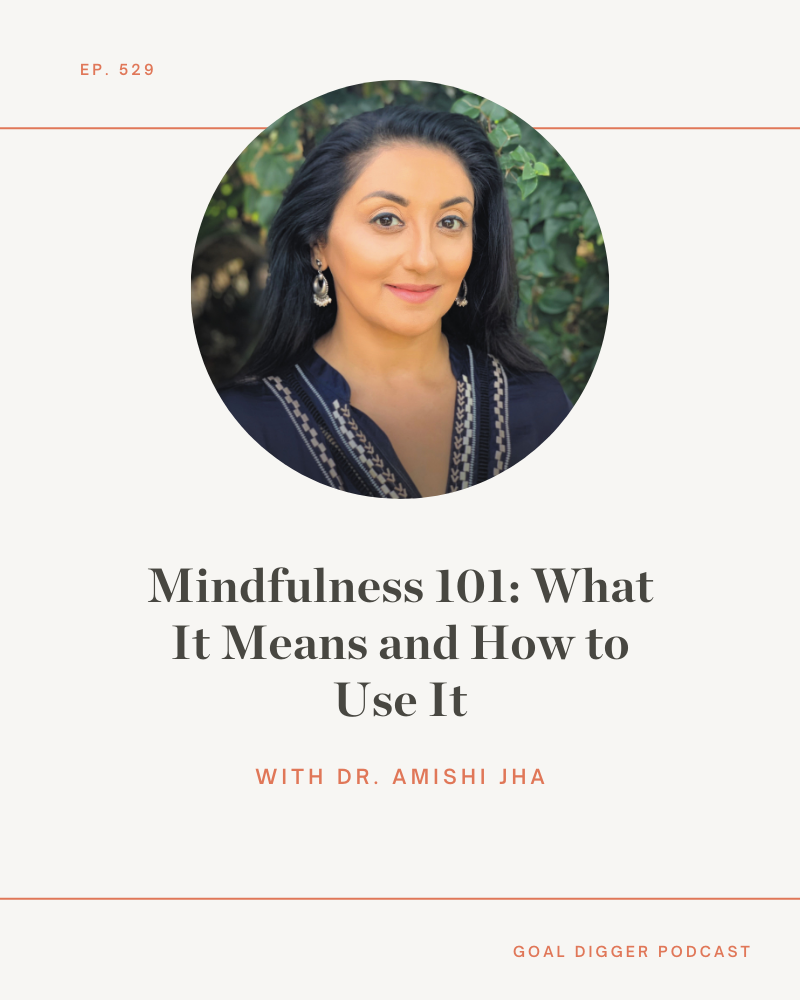
Apple Podcasts | Spotify | Stitcher
So you’re looking ahead at your calendar and the date keeps getting closer and closer. The big meeting you’ve been preparing for is coming at you, full steam ahead, and just thinking about it already has you nervous and doubting yourself. What will happen when that high-stakes event, important negotiation, or big event finally arrives? How will you focus amidst the pressure and nerves?
Dr. Amishi Jha is a professor of psychology at the University of Miami and the Director of Contemplative Neuroscience for the Mindfulness Research and Practice Initiative. Simply put, she is THE voice of mindfulness, and has dedicated her study to understanding why our attention sometimes fails us, and how we can strengthen our attention to improve our performance at work and in life.
In this conversation, Dr. Jha will help us all understand how to leverage mindfulness to remain present in high-stakes situations, lift our mental fog, and improve our focus so we can experience more of our lives.
The Science of Attention
Dr. Amishi Jha began studying cognitive neuroscience in her undergraduate education, and that evolved into a deep interest in the science of attention. She is fascinated by the study of attention and how it works. “What is this brain system? How does attention work? We use sophisticated brain imaging and techniques to try to understand, with a nuanced level, what attention is,” she explained.
After a situation with her young son revealed her own gaps in attention, she said, “It really pivoted my research interest to understanding how we can make our ability to pay attention strengthened and stress proof.”
She brought this interest to the lab and decided to make attention and mindfulness the center of her research. That was nearly 20 years ago, before “being present” was a constant buzz word and societal pressure. In her research, Dr. Jha found that in 12 minutes a day you can develop your mindfulness skills with formal mental exercises that allow you to have better access to your own mind and find your focus.
12 Minutes
“Our attention is precious. It’s powerful, but it’s vulnerable,” Dr. Jha explained. “And that vulnerability is not something to ignore. It’s something to train for so that you can essentially ensure you have access to your own peak mind.”
During our conversation, Dr. Jha explained how attention impacts everything from emotional regulation to executive functioning (hit play on the episode for that nugget of knowledge). The good news is that she found you can develop your mindfulness and attention skills in 12 minutes of training per day.
Mindfulness of Breathing
One strategy that Amishi called a “hip pocket practice” is something that she teaches the military personnel she works with. It doesn’t require any special tools and you can bring it with you on the go so you can work on your mindfulness skills anywhere.
This practice is called mindfulness of breathing. Start small (maybe set a 1 minute timer and work up to 12 minutes) and sit comfortably in an upright dignified posture. “For the period of time you’re going to practice, you’re going to pay attention to breath related sensations.” Notice your breathing and imagine taking your “attention flashlight” and pointing it to the most prominent breath related sensations. “It could be for you, maybe the coolness of air moving in and out of your nostrils, or maybe it’s your abdomen moving in and out, your shoulders, whatever it is on your own body… You’re just breathing and paying attention,” she coached.
“You’ll notice that your mind has a mind of its own. It wandered somewhere else and is not on the breath anymore,” Dr. Jha explained as she led me through this exercise (she was right, by the way). When that happens, “simply take that flashlight of attention and direct it back to the breath.”
This practice is like a mindfulness pushup, she explained, “By doing that rep over and over again, and it would be thousands of times over the course of 12 minutes that you might have to bring your attention back, you’re strengthening the capacity to do all three of those things.” That is, keep your focus, notice where your mind is, and then redirect it back to where you want it.
More from Dr. Amishi Jha
“Here’s the data: 50% of our waking moments our mind is not and our attention is not where we want it to be,” Dr. Jha told me with a mic drop moment. Are you obsessed with the topics of cognitive neuroscience, mindfulness, attention, and focus like I am? Then you’ll want to press play on this episode for even more science-baked strategies to reclaim your focus and employ mindfulness in high stress situations at work or in your personal life.
Follow Dr. Jha on Instagram @amishipjha and learn more about paying attention to your attention with her book Peak Mind.
Thank You to Our Goal Digger Sponsors
Learn how you can transform your customer experience with a HubSpot CRM Platform




